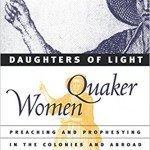Amid the semester’s end, the following is adapted and slightly updated from the Anxious Bench archives…
One of the big surprises of 2017 was the extent of evangelical support for Donald Trump. During the Republican primaries, evangelicals might well have divided their support among a number of candidates who spoke persuasively about their Christian faith, including Ted Cruz, John Kasich, and the now-defunct Ben Carson, Marco Rubio, and Jeb Bush. Nevertheless, in many early primaries, Trump attracted a plurality of the Republican evangelical vote.
As the primary season proceeded, things were more mixed. Trump nearly won an outright majority of the evangelical vote in Florida, but Ted Cruz out-performed him among such self-identified voters in Missouri (by quite a bit), Illinois (very narrowly), and North Carolina (even more narrowly). Kasich narrowly carried the evangelical vote in Ohio. Eventually, as Trump steamrolled to the nomination and then won the presidency, he gained a massive share of the evangelical vote. 4 out of every 5 white evangelical voters opted for Donald Trump.
Many journalists and other commentators noted the fracturing of the evangelical vote in 2016 and sought to explain Trump’s success among this demographic. Stephen Prothero offered a good starting point for assessing these developments: “America’s evangelicals just aren’t all that evangelical anymore.”
So, what does it mean for someone to be an “evangelical?” Prothero suggests that “what made an evangelical an evangelical was a born-again experience that included accepting the Bible as the inspired word of God and giving one’s life over to Jesus Christ as Lord and Savior. To a born-again Christian, following Jesus came first. Everything else came in a distant second.” He suggests, though, that this is no longer true for most self-identified “evangelicals.” It’s the Republican Party or whatever political savior appears that takes priority over Jesus.
I’m not convinced without further evidence that self-identified “evangelicals” are less evangelical than they were in ca. 1980. The positions of Jerry Falwell’s Moral Majority, after all, did not flow straight out of the New Testament.
The bigger issue here in my view is that journalists and pundits invest “evangelical” with overly broad meanings. First of all, most exit polls ask respondents whether they are “evangelical or born-again Christians.” If the question were simply, “Are you an evangelical?” many respondents might well be confused, and journalists would probably identify fewer Americans as such.
In the 1950s, the term “evangelical” or “new evangelical” had a particular meaning, identifying a camp of theologically conservative Protestants led by Carl F. H. Henry, Harold J. Ockenga, and, above all, Billy Graham, that wanted to create a more attractive version of fundamentalism. Over time, though, “evangelicals” won this internecine, intra-fundamentalist conflict. As the ranks of self-identified “fundamentalists” narrowed, “evangelical” became shorthand in many quarters for all theologically conservative Protestants, especially those who placed a central importance on the born-again experience of conversion.
Scholars, meanwhile, often define evangelicalism in terms that are simultaneously specific and vague. Following the lead of David Bebbington, they define evangelicals as Protestant Christians who place strong emphases on conversion; on biblical authority; on activism; and on the meaning of the crucifixion for the atonement and human salvation. For example, in my history of Campus Crusade for Christ, I defined evangelicals as “Protestant Christians who readily talk about their experience of salvation in Jesus Christ, regard a divinely inspired Bible as the ultimate authority on matters of faith and practice, and engage the world in which they live through evangelism and other forms of mission.” Of course, many Christians who would not think of themselves as “evangelical” or “Protestant” could own such language. Historians, though, have particular groups of Protestants in mind from the eighteenth-century through the present day.
Nowadays, the term “evangelical” has morphed into something far more diffuse and confusing. As Stephen Miller observes, “its footprint has extended far beyond the number of people who might fairly be called evangelical.” Many conservative Protestants recognize and lament this reality. For example, D.G. Hart has argued that theologically conservative Protestants should discard “evangelical identity” for confessional identities more closely tied to historic Christian movements.
As an antonym of sorts for “liberal Protestant,” “evangelicalism” is still a reasonable way to identify factions within a range of American denominations and an umbrella term that brings together a host of parachurch organizations, nondenominational churches, and other institutions.
At the same time, “evangelicalism” as imagined by many journalists does not exist, nor is there an “evangelical” movement akin the one led — albeit loosely — by Billy Graham in the decades following the Second World War. To claim that a quarter of Americans are “evangelical” or “born-again” says rather little. And if we want to examine the appeal of Ted Cruz or Donald Trump to different sorts of American Protestants, we need far more precision. American evangelicalism, in short, no longer exists the way that many journalists and scholars imagine it.













